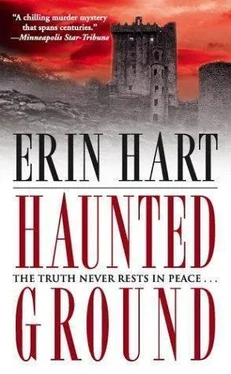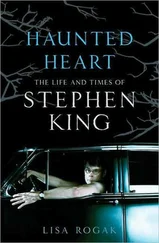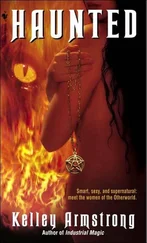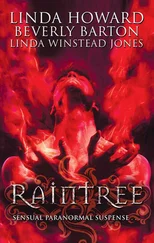She had two large rounds of brown bread and four half-sized loaves ready to go into the oven. Una took the bread knife and deftly cut a cross in the top of each one, just as her mother had shown her how to do, then quickly shoved the pan into the hot oven. She turned and regarded the mess in the kitchen, the large crockery bowl and table covered with the sticky remains of the brown bread and spilled buttermilk, the open bags of flour and wheatmeal, and she sat down wearily at the table and rested her head on her arms. A few hot tears trickled off the end of her nose and splashed in the flour left over from where she’d kneaded the bread. The world had fallen asunder, and she had no idea how to put it right again.
The phone beside his head roused Devaney out of a deep sleep. He rolled over and grabbed the receiver. “Devaney here.”
“Still in bed. Christ, how I miss dear auld Ireland,” Deasey said. “I’m calling with news. The least you could do is act surprised, if you can’t manage to be pleased this time of the morning.”
“I’m fucking delighted,” Devaney said, sitting on the edge of the bed and squinting. “What time is it, anyway, Jimmy?”
“Nearly half-nine, ye lazy sod.” Fuck it; nine-thirty, Devaney thought, and nobody had bothered to wake him. That meant he’d already completely missed the station meeting this morning.
“Thanks for ringing, Jimmy. What have you got?”
“Your man’s gone into a bank. The receptionist turned out to be a girl from Cavan, so I turned on the auld charm and actually got her to cough up a small bit of information. Seems he was at school with one of the top men there, and you know what chummy bastards old school boys are. No word on what the meeting was about, but nobody goes to a bank unless he’s got plenty of money, am I right?”
“Or needs money.” Devaney was completely awake now, struggling to put an arm through his shirtsleeve while keeping the phone to his ear. “Anything on the address from last night?”
“Oh, yeah. Bad news, I’m afraid. Or mebbe I should say no great mystery. Your man’s not a bigamist after all. The house belongs to a doctor named DeSouza. Well respected, good clientele. The woman and child were evidently his daughter and granddaughter, friends of Osborne’s wife. He always stays with them when he goes to London. Sorry.”
As he hung up the phone, Devaney knew he should have asked the Badger to follow up on Osborne’s movements in the days before the disappearance. Why hadn’t he just come out with it? The image of the carved letters in the church floated in his groggy head: He knows where they are. If somebody knew something, why wouldn’t he just come forward? The usual reason was that he’d have to put himself—or someone else—in a compromising position. Who among Osborne’s family, neighbors, and business associates might have something to hide? He already knew the answer: everyone.
Ned Raftery’s house was set at a right angle to the road, so that the gable end faced out, and the front of the house faced a walled garden. Nora pulled up in the gravel drive, and Cormac followed as she entered through the black iron gate. Inside, a chest-high boxwood hedge defined the margin of the garden, and against its tiny, dark green leaves grew hundreds of rosebushes. Most were just beginning to bud, but a salmon-colored climbing rose and several sprays of white shrub roses were already in bloom and gave off the most marvelous scent. Nora leaned in to the nearest open flowers to inhale their sweet, heady perfume, and let out a small, wordless exclamation.
“I’m glad you like them,” a man’s voice said. She turned and saw the man she presumed to be Ned Raftery rising from his knees, closing the lock on his pruning shears, and moving toward the sound of her voice. His clouded eyes seemed to look straight ahead.
“They’re wonderful,” Nora said. “I’m drunk on that fragrance, I swear.”
“And people wonder why a blind man bothers growing flowers at all,” Raftery said, smiling.
“We haven’t met. I’m Nora Gavin.” She was unsure whether a handshake was in order until Raftery put out his open palm, on which she placed her own. He brought a fresh-cut rosebud from behind his back and presented it to her.
“Welcome, Dr. Gavin. And Professor Maguire as well, I presume, welcome.”
“Thank you for taking the time to speak with us,” Cormac said.
“Not at all. I’m not sure I have any knowledge that might be useful to you, but you’re welcome to whatever I’ve got locked away up here.” Raftery tapped his forehead. “Please come in; I’ll make tea.” They waited for him to step onto the path before them, and followed as he ushered them into the house.
Just inside the front door was a long room. At one end, near a large fireplace, sat four well-used upholstered chairs; bookcases, crammed with volumes old and new, crowded the walls. A heavy oak trestle table with eight chairs divided the sitting area from the open kitchen, and a huge cook-stove stood opposite, where the fireplace used to be.
Raftery followed an obviously familiar path to the kitchen, where he put the kettle on to boil, and set about cutting some white soda bread studded with raisins, using his left hand to reach across the knife blade and gauge the thickness of each slice. Nora and Cormac each took a seat at the large table.
“Fintan McGann mentioned that you were his teacher,” Cormac said.
“Ah, Fintan. Bright lad. I tried to teach him something about history, but even then he didn’t care about anything at all except the music. He’s getting to be a tasty piper, wouldn’t you say?”
“Very decent,” Cormac agreed. “He was playing some great notes at the session last week.”
“That was a mighty night, wasn’t it? Well now, you’re here to find out something about our local history,” Raftery said, bringing over the bread on one plate, a lump of butter on another, and a couple of knives. He drew out the chair at the end of the table and lowered himself into it. He must have been about sixty years of age, clean-shaven, with gray hair standing up a bit off his forehead. He was a burly man, with short legs and a long, barrel-shaped torso. He wore a button-down shirt and a sweater with a hole in one elbow, and heavy brogues on his feet. More the look of a laborer than a schoolteacher, Nora decided.
“We’re trying to find out anything that would help us identify the girl from the bog,” she said. “I assume you’ve heard about her—seems like everyone has. We know it’s a long shot, but we’ve just come across something that I hope could be a significant clue.”
Raftery’s face was impassive; his eyes seemed to fix their sightless gaze on the other end of the table. “Go on.”
“There was no sign of her body anywhere about. Just the head. Since then we’ve been able to do a fairly thorough examination. She was about twenty to twenty-five years old, with long red hair. From the damage to the vertebrae, we think she was beheaded, most likely with a single blow from a sword or axe. Now the recent development is that inside her mouth, we found a man’s gold ring with a red stone. There was an inscription: two sets of initials, COF and AOF; a date, 1652; and the letters ‘IHS’ set in brackets at the center of the date.”
“We’re still waiting on radiocarbon results,” Cormac said, “so we’ve started to do some historical research on beheading. Then Nora discovered this ring, which gives us a possible date—a place to start at least.”
“Our reasoning is that she’d probably been in the bog no earlier than 1652, since that’s the date on the ring, although it could have been any time since then.” Nora looked at Cormac and shrugged. She’d known he was right, even though it annoyed her.
Читать дальше











